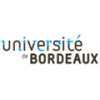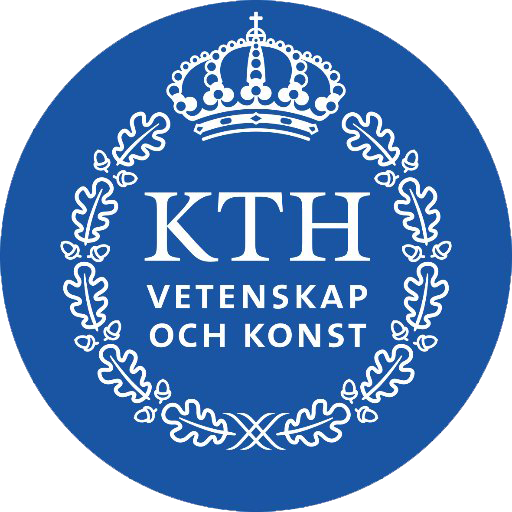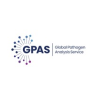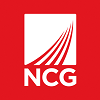Snabbfakta
-
- Bordeaux
Ansök senast: 2024-08-11
PhD in immunology
Employeur
Do you want to get involved in a European health project? You’re looking for a funded PhD ?
Join the ImmunoConcept laboratory – of the University of Bordeaux!
The European Project Officer is responsible for the administrative and financial coordination and management of the HORUS (Casting Light on HOst-cytomegaloviRUs interaction in Solid organ transplantation) research project.
is funded by the European Commission (Horizon Europe Programme - health cluster, destination "tackling disease" and is coordinated by the University of Bordeaux (Immunoconcept laboratory; IMMUNOLOGY from CONCEPT and EXPERIMENTS to TRANSLATION). The project manager is placed under the hierarchical authority of the scientific project leader, (Hannah Kaminski) with a strong functional link with the administrative and financial services of the laboratory and the central services of the University of Bordeaux.
The HORUS project aims to improve our understanding of the "host-virus" relationship between cytomegalovirus (CMV) and solid organ transplant recipients to discover signatures integrating viral, clinical and immunological characteristics associated with CMV control. The ultimate goal is to decrease the incidence of CMV, better manage difficult-to-treat infections, avoid the use of unnecessary antiviral therapies, and discover new molecules that can specifically target the CMV immune response without increasing the risk of acute rejection. This project will address three unresolved questions:
1. How to identify host-virus interactions that impact on the incidence of CMV infection after solid organ transplantation?
2. How to identify the host-virus interaction associated with effective control of CMV infection?
3. How to improve the prevention and management of CMV infection using immunomodulatory regimens that enhance the immune response to CMV?
In this context, we are looking for a PhD student in immunology.
Votre mission
The PhD project will be a 3 year-project based on :
- the analysis by flow cytometry of patients’ samples recruited in HORUS cohort to contribute to identify signatures associated with CMV control
- in vitro study and potentially, in vivo study with mice model, analysing γδ T cell response to CMV both in patients with preformed immunity (called CMV positive patients) and in naïve patients (called CMV negative patients)
1. Assessment of γδ T cells function of R+ patients
We postulate that immune cells in CMV positive patients who develop CMV reactivation will have a more dysfunctional profile than R+ patients without CMV infection (Kaminski H, JASN 2021). Dysfunctional and non-dysfunctional gd T cells will be similarly analyzed after activation with CMV-infected cells. Full functional characterization of activated T cells will be performed using intracytoplasmic detection of IFNg, TNFa, MIP1b, IL-2, and cell surface expression of CD107 and CD40L after stimulation by flow cytometry.
We will determine which inhibitory receptors or metabolic pathways are involved in dysfunction using ex-vivo blocking antibodies, pharmacological inhibitors, and CRISPR-Cas9 gene knock-down.
Finally, we will decipher full transcriptome of dysfunctional versus functional γδ T cells after cell-sorting by cytometry and bulk RNASeq.
2. Assessment of naïve γδ T cells responding to CMV
Preliminary data from our team suggest the existence of a natural repertoire of innate naïve γδ T cells responding to CMV in healthy individuals with negative CMV serology (CMV-negative individuals), who are at the highest risk of CMV disease post-transplantation. These cells and their response to CMV have not been studied previously, although the presence of CMV-responsive T lymphocytes in CMV-negative individuals may have a significant impact on the subsequent response and control of CMV infection after transplantation.
γδ T cells responding to CMV will be characterized in more detail at the transcriptional level (RNASeq), phenotypic level (NK-type receptors, checkpoint molecules, cytotoxicity by flow cytometry), and functional level (cytokine and chemokine production). Since γδ T cells exhibit adaptive properties and an effector/memory phenotype when studied in CMV-positive individuals, our in vitro co-cultures will help us understand the transition from a polyclonal innate repertoire to an adaptive mono/oligoclonal repertoire of CMV-responsive γδ Tcells.
Concurrently, an ex vivo analysis of γδ T cells in CMV negative patients from the patient cohort included in HORUS, experiencing CMV infection post-transplantation, will be conducted at various time points before and during infection, with a focus on transcriptional aspects. Candidate pathways involved in activation will be blocked using specific antibodies or inhibitors, emphasizing those targeted by current immunosuppression (TCR signaling, mTOR pathway, cytokine receptor signaling) to compare the ability of naïve T cells to respond in the context of immunosuppression compared to conventional αβ T cells.
Once the molecules or pathways involved in the early stages of γδ T cell activation are validated in vitro, we will validate them in vivo using mice deficient for these molecules/pathways. Naïve γδ T cells from knockout mice and wild-type mice will be adoptively transferred into CD3KO mice to assess their ability to protect CD3KO mice from CMV-induced mortality.
A such you:
· Develop and use innovative techniques necessary for the characterisation of immune response in humans
· Participate in the writing of original articles and reviews produced in the framework of the project
· Present results at team meetings
· Work of bibliography
The + of this position:
· You will be provided with training courses offered by the University (new techniques, use of software, etc.)
· You will be able to develop and update your project knowledge through regular bibliography
· You take art to the development, experimentation and implementation of innovative techniques for functional and molecular analysis of immune cells in humans (based on flow cytometry, measurement of gene expression by PCR, tissue labelling, mouse experiments, biochemical techniques such as Westernblot immunoprecipitation, ELISA)
· Regular meeting with thesis supervisor
Vos atouts / Vos talents
Holder of a Master’s degree in immunology, you have acquired a solid level in cellular and molecular biology, immunolabelling techniques and biochemical analysis techniques.
· Ability to adapt to different methods and techniques and organize yourself
· You are persistent, rigorous and enjoy working in a team environment
· Proficiency in using software such as: Prism, Flowjo, Excel
· You speak English (level C1/B2) in a multicultural work environment
By joining the HORUS project, within ImmunoConcEpT, you will work in a multidisciplinary team.
Note: you will work with biological samples of patients (tissues or PBMC) potentially infected with CMV and mice infected with CMV, which requires compliance with strict hygiene and safety guidelines.
Based in Bordeaux – access by tramway line A (stop « Hôpital Pellegrin ») buses, bike.
The laboratory is near the city-centre of Bordeaux and about 60 Km of the Atlantic coast.
36-month fixed-term contract
Salary gross per month: 2100€ according the salary grid
Job Benefits:
50 days of vacation from the first year of collaboration
Refill of 75% of the subscription to the public transport
Participation in the private healthcare up to 15€ / month
Leisure, sport and culture for all staff
Disabled-friendly establishment
Possibility of staff parking
Sustainable mobility package for commuting – work













